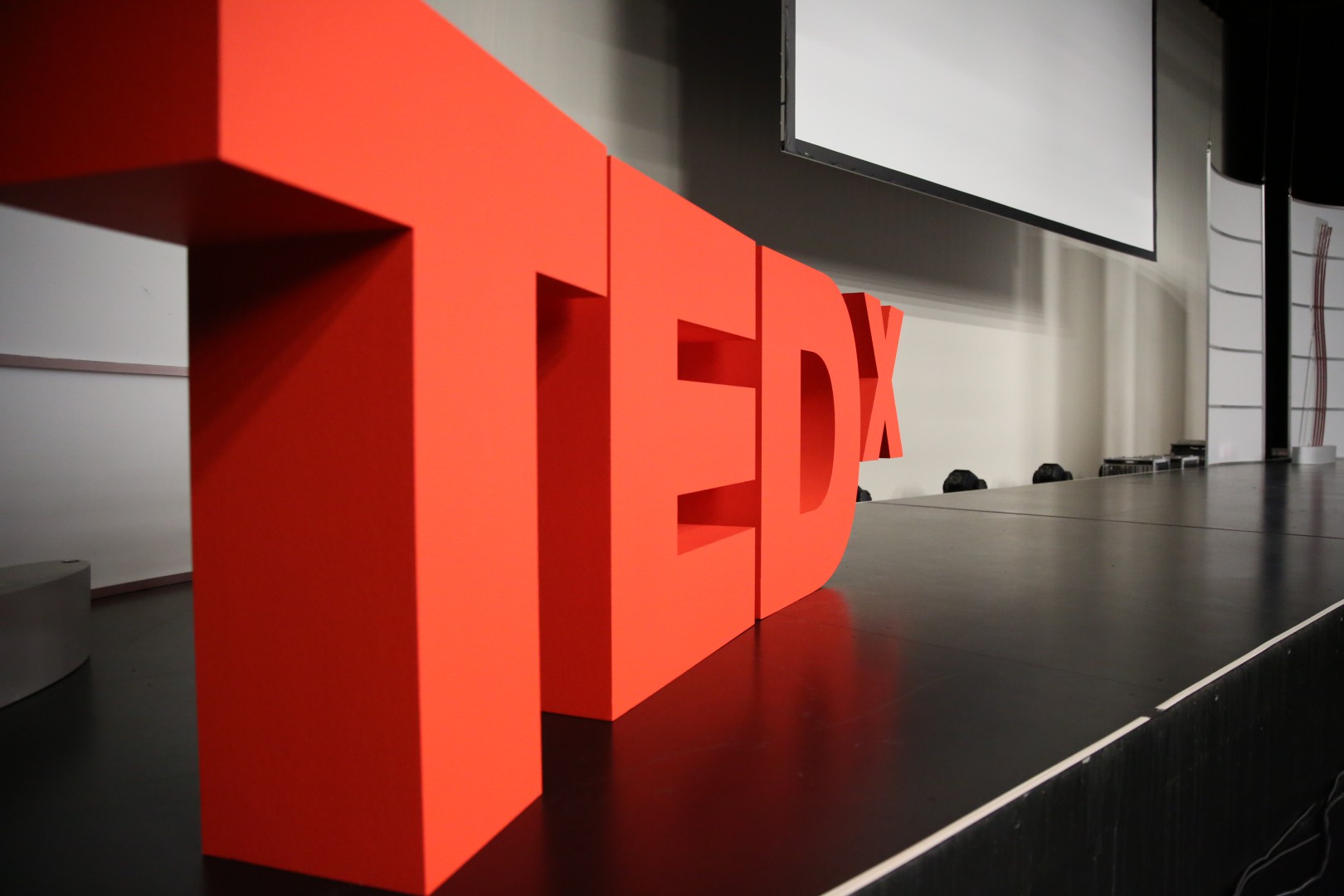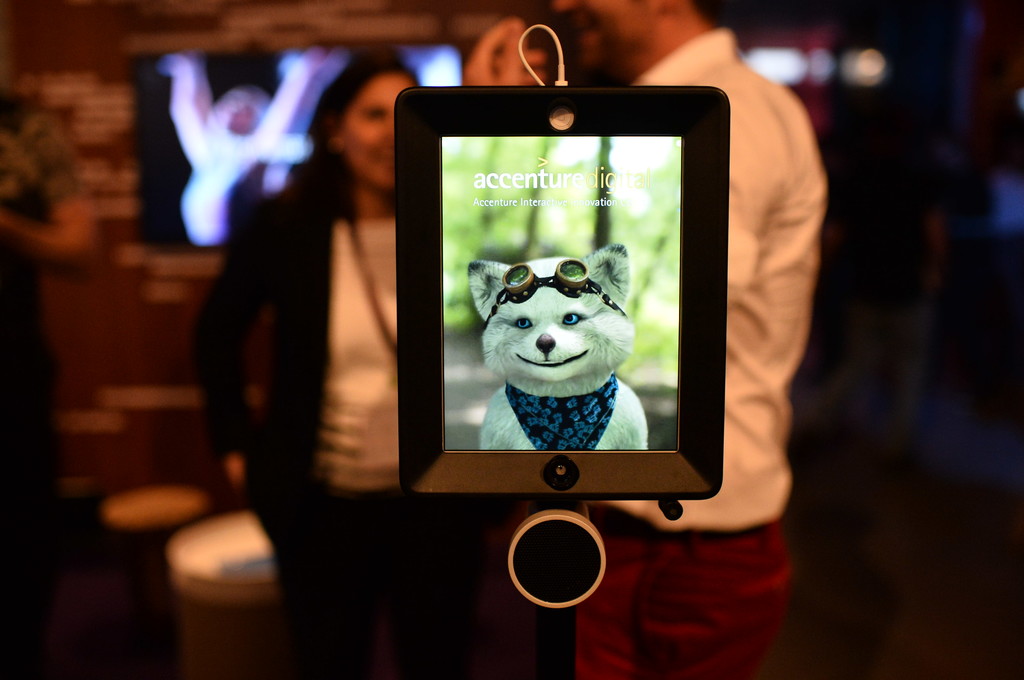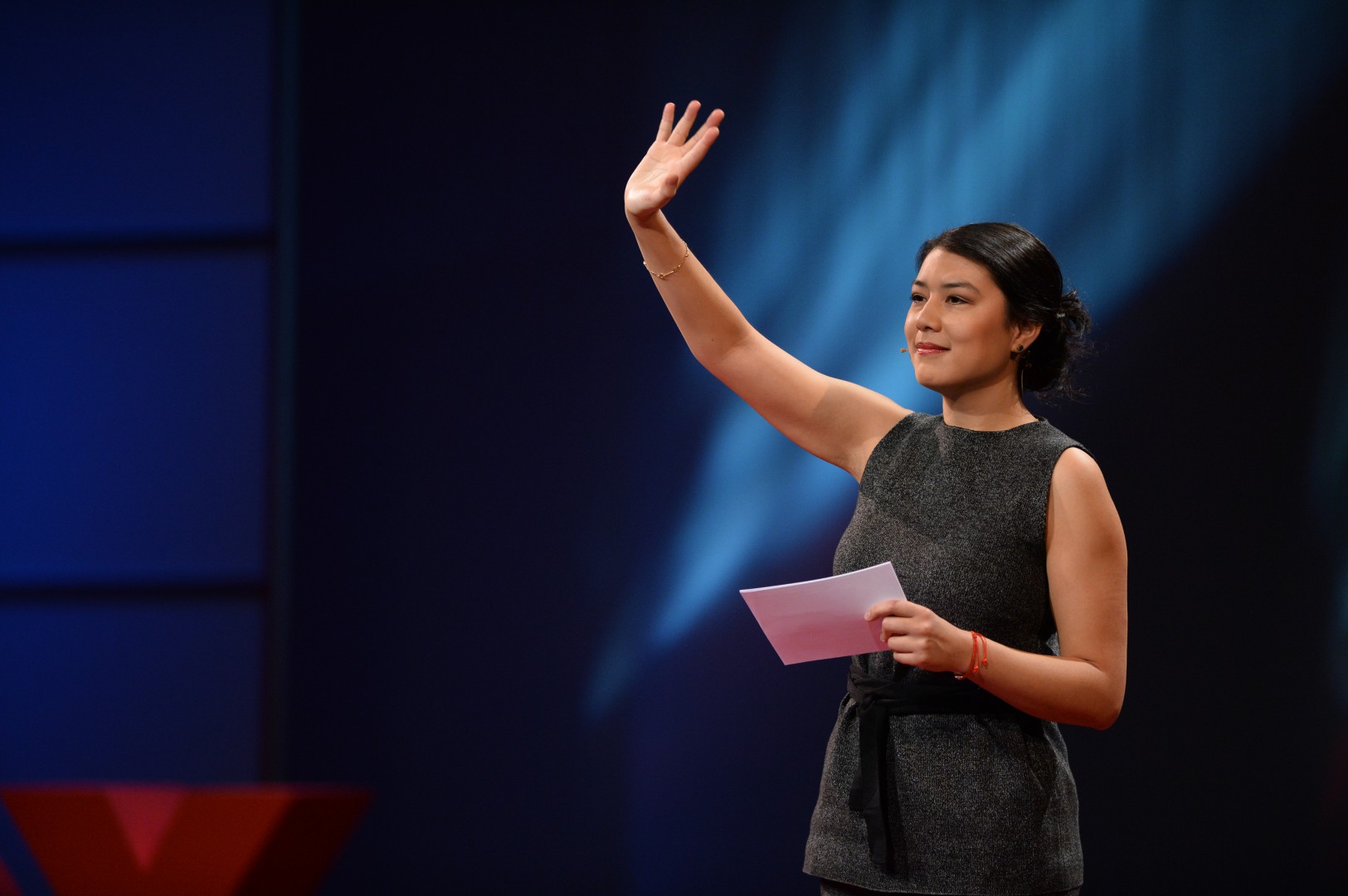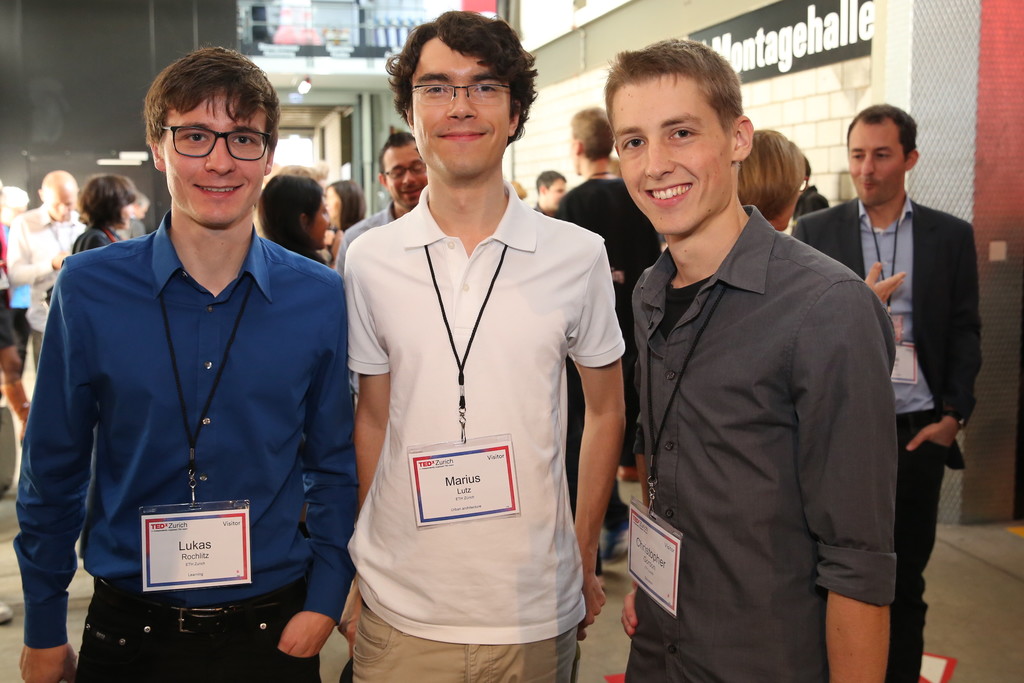This week I had the opportunity to join the annual TEDxZurich conference, one of many TED events occurring all over the world. Many of you might have at least listened to one such talk on the web. TED talks stand for ideas worth spreading, conveyed in form of inspirational speeches which focus on aspects of psychology, social and natural sciences and technology. Every speaker has 18 minutes to deliver his ideas, ideals or pitch to the diverse audience. Find out more about their concept on their website.

The topic of this addition was „Re-Imagining everything“. This time, 13 speakers were invited, the full list including their individual backgrounds can be found here.
Not only the speakers were carefully selected, the audience was as well! In order to attend the event you had to apply with not only some information about your background and your specialization but also with your personal view about what you would like to re-imagine. Luckily, I counted myself to the selected audience members some weeks later. In addition to the 400 members from the audience, professionals for light, sound and filming and 45 volunteers helped making the event a huge success. For all the others who could not made it, a livestream was broadcasted both online and at the ETH main building for everyone to follow the event.
Arrival
Friday morning I arrived at the SRF television studio in the north of Zurich. Everything was already nicely prepared and the registration went smoothly. Everyone received a name card with name, occupation and the thing they want to re-imagine written on it as well as a drinking bottle. Before entering Studio 1, where the main stage was situated, I took a tour around the venue and found some interesting booths. Some established businesses like UBS, Mazda and Accenture presented themselves in the smaller Studio 2, used as a get-together place. At Accenture Digital, visitors could get their brainwaves measured in an interactive game. Moreover, they had an interactive robot which followed you and reacted to natural speech. Also the ETH was present as one of the sponsors and had a nice booth showcasing current research topics.
Shortly after I met up with two of my university colleagues who were also attending the event. We were early enough to get seats in the third row quite close to the stage. In the full Studio 1 we were welcomed by David Nydegger, the head of the organisation committee and Tanya König, the host. The head of SRF, Rudolf Matter, shared some words before leaving the stage for the first speaker.
In the following, I will give a short summary of all talks given. All of them were outstanding, inspirational and sometimes comic or breathtaking. It is really hard to mention all the good points that were made, so look forward to the recordings if you did not have the chance to listen to the talks. Besides my summary and impressions I also included some opinions from others via Twitter.
Fighting dyslexia with computer science
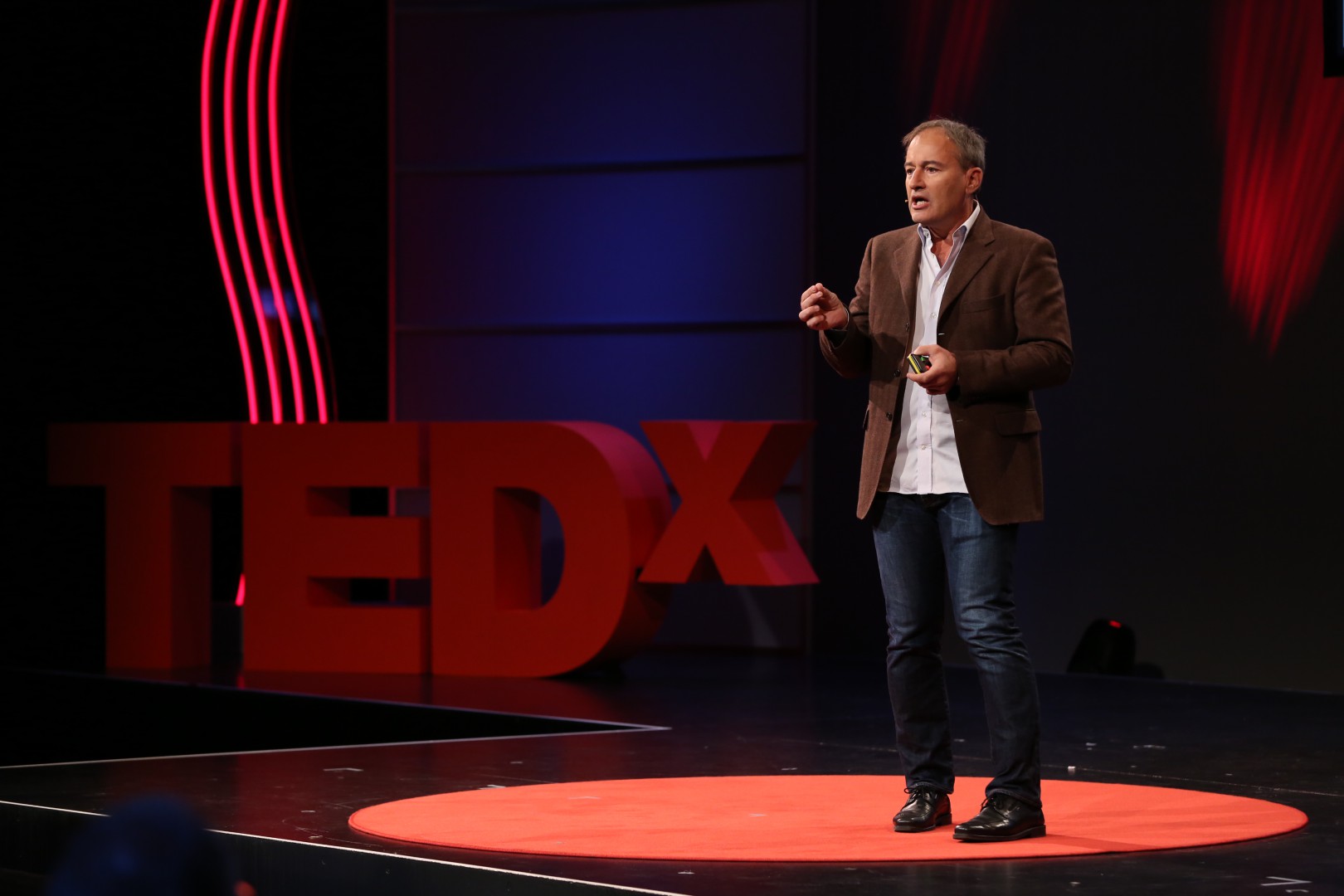
Markus Gross has a son who developed dyslexia (the inability to properly comprehend writing) in the first years of school. After trying countless therapies without results he took it in his own hands. The professor of Computer Science at ETH and director of Disney Research teamed up with his group and colleagues at the university clinic to develop a learning program that teaches dyslexics words by an innovative approach. The individual letters are associated with colour, shape and tones to strengthen the recognition. He showed us the result of the ambitious project: his son and many others strongly improved their reading ability and Gross is now aiming at curing dyscalculia (the difficulty to learn basic arithmetic like addition or subtraction) with a similar approach.
Ein Computerwissenschaftler nähert sich Gehirn und Wahrnehmung. "Fighting Dyslexia" mit @MarkusGross63 #tedxzurich pic.twitter.com/fBMrPiQIBS
— Andi Gentsch (@elGentscho) November 6, 2015
Aesthetic activism in the business of beauty
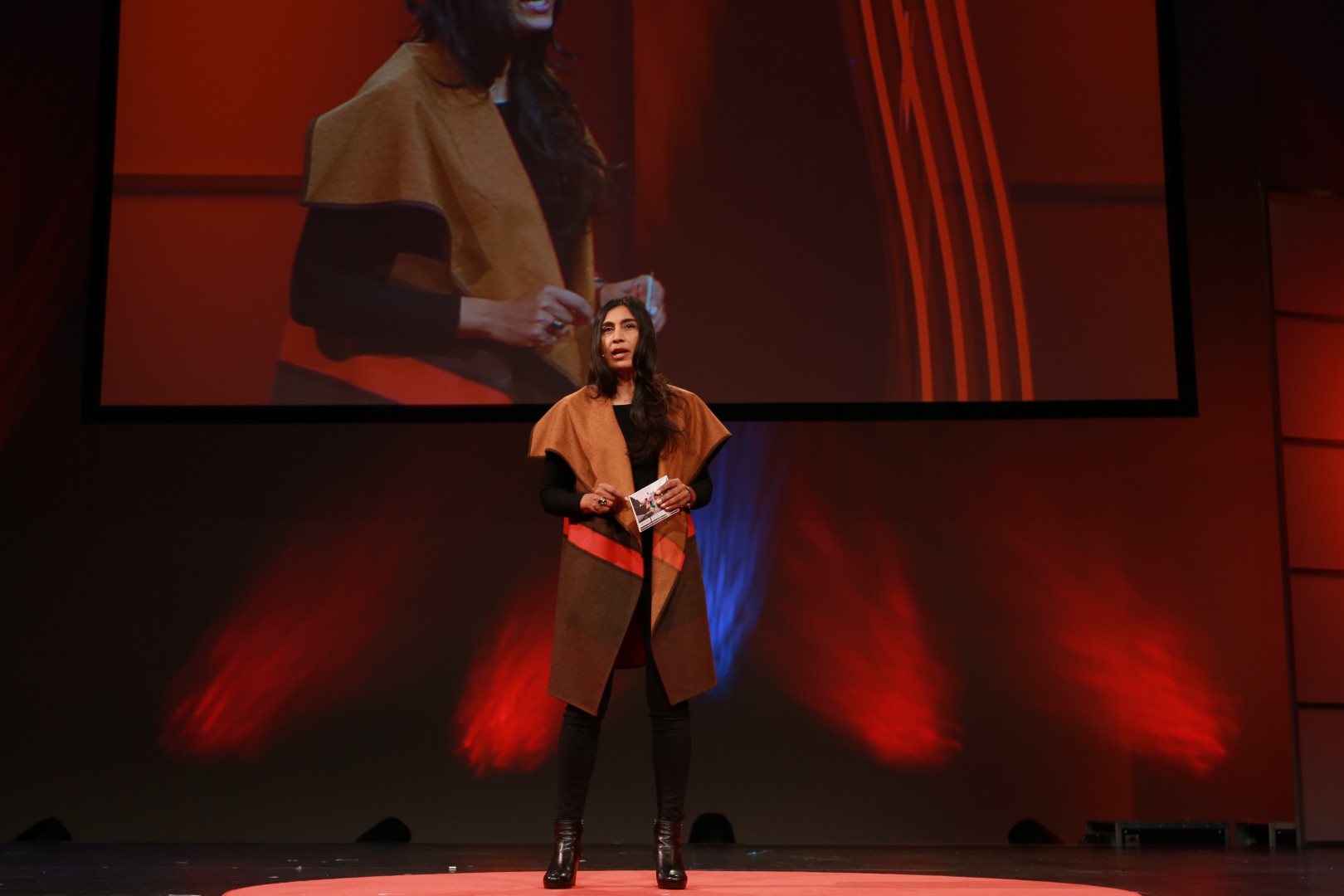
Anju Rupal told us an inconvenient truth. Hygiene and sanitisation is very different around the world. In rural India it is considered normal to relieve oneself outside, no matter what the gender. Especially for women this poses more a risk than just inconvenience, as there are times where they are assaulted while being defenceless. The first idea is not always the brightest, she told us. Instead of just improving the sanitisation standards it is equally important to educate the people about hygiene and disease spreading. „Educate a boy, and you educate an individual. Educate a girl, and you educate a community.“ She founded a non-profit organisation selling cosmetics and beauty products and uses the profits to improve hygiene education in India.
Negotiation engineering
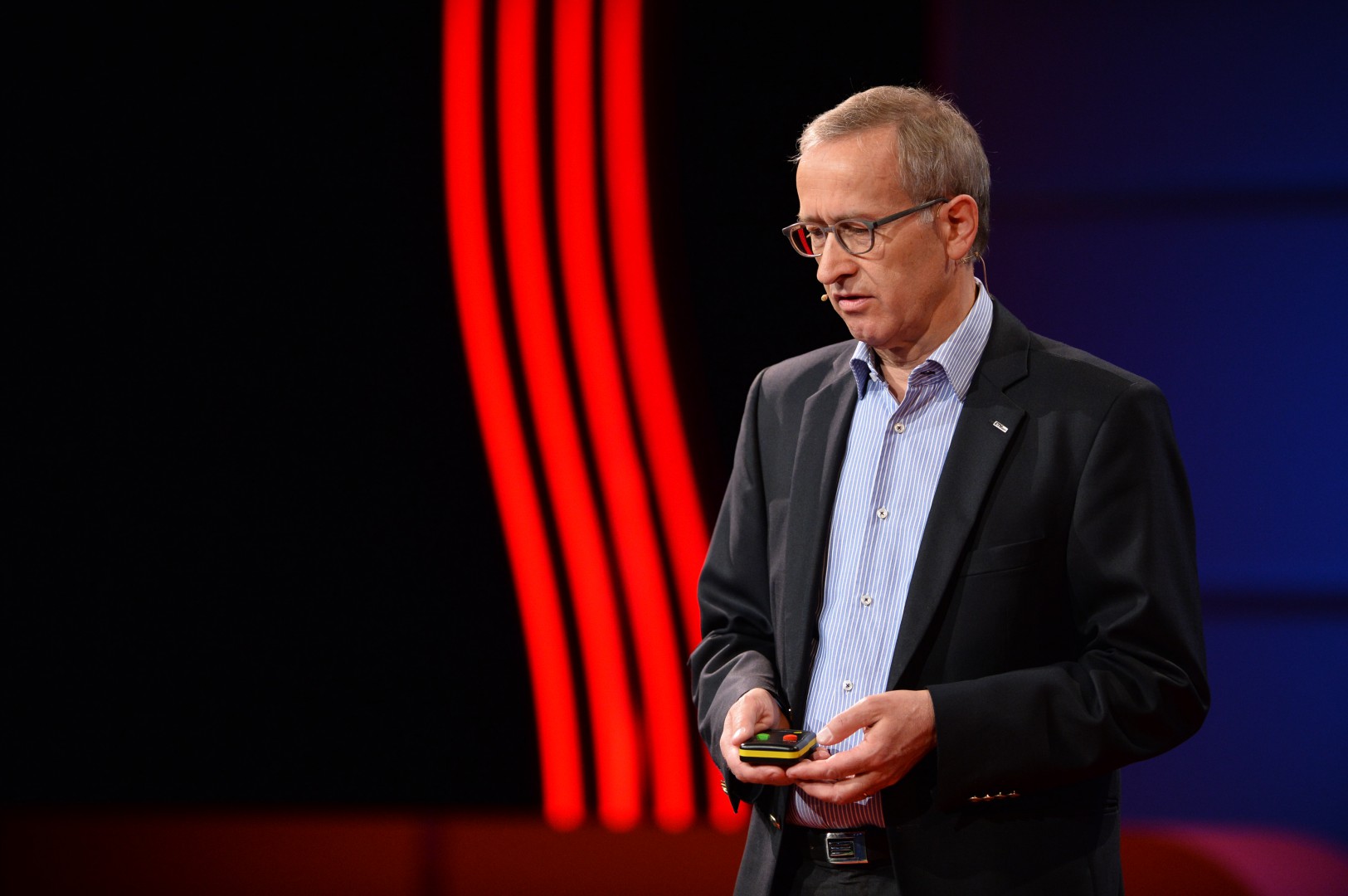
Michael Ambühl, another ETH professor, thinks there is a mathematical approach to negotiation which can be employed to predict decisions that will be made in the future. Starting off with the well-known secretary problem he shows the necessity for such a theory. Imagine, you are working in HR and have to interview people. The catch: You have only one position available and have to instantly decide whether you choose or reject the candidate. Without being able to predict or take any further assumptions, the best mathematical way is to reject people instantly and then take the first person who was better than all preceding.
His second example was about the bilateral talks about the nuclear program of Iran. He showed that both parties, the USA and the Iran, have no interest in giving back if the other party does not do so at the same time. This can be reduced to another model from game theory and after taking the further developments like sanctions and the rising amount of enriched nuclear fuel into account, a flexible-flexible outcome is the best result for both parties. His take-away message is: If everyone were flexible, good solutions are feasible. „Mathematics does not solve problems but takes emotionality away and makes them understandable.“
"Be open for negotiations" – Michael Ambühl. "De-emotionalize a problem with math" #tedxzurich #tedxzurich pic.twitter.com/yYG3RFHrYO
— Manuel Aeberli (@the_street_ch) November 6, 2015
The power of voice
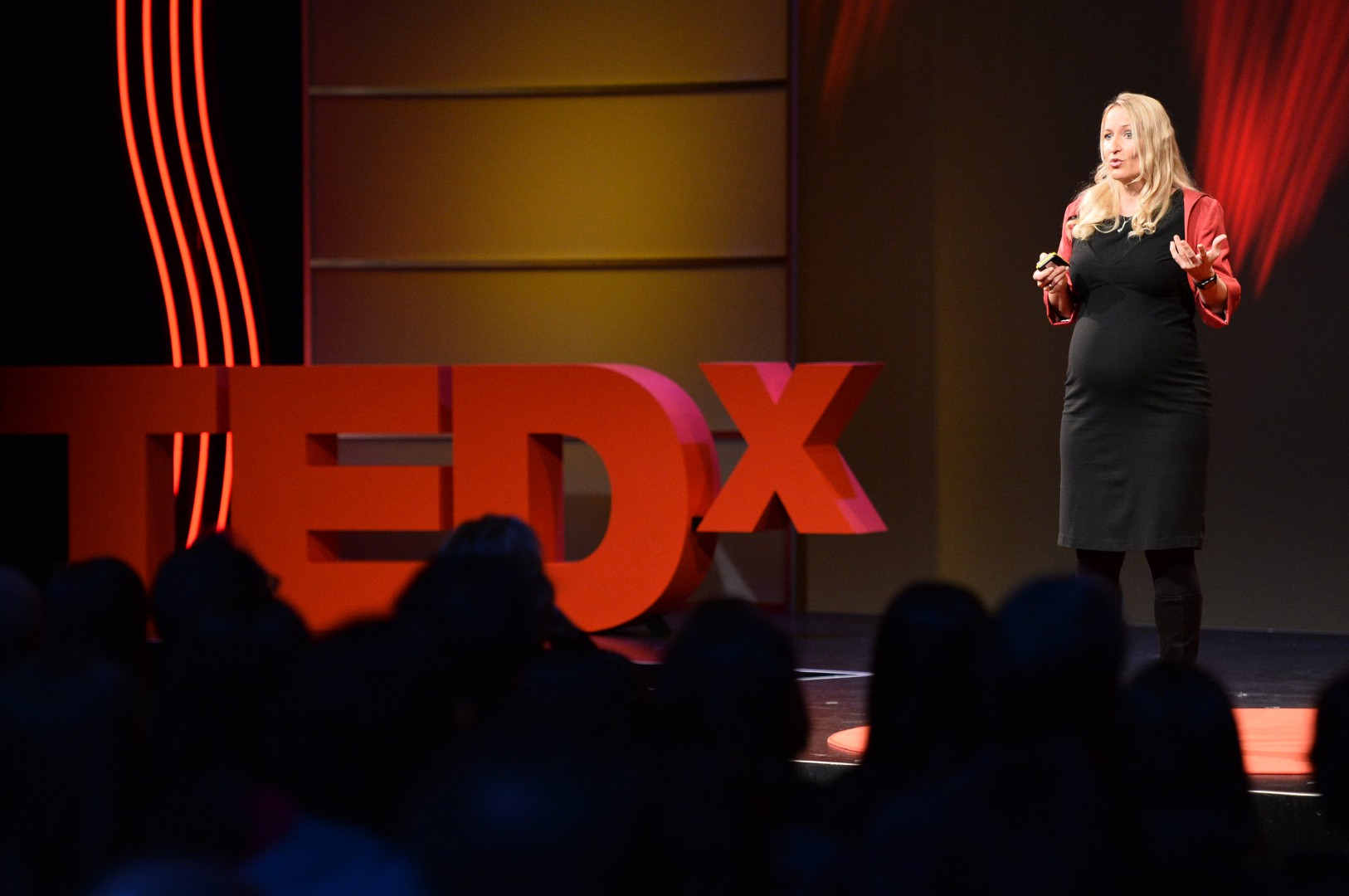
Nadine Bienefeld used to work as a flight attendant with Swissair until she became involved with an airplane crash boarded with dear friends and colleagues. She changed her occupation and became security advisor for coaching flight crews and other high-risk employees. Everyone makes mistakes, but if these are not communicated, the worst things can happen. Many problems can be resolved if fear of lack of authority or reluctance can be overcome. In fact, the bigger the group, the less likely are individuals to speak up. Her solution is a three part action plan: A, B and C (see below). „Human error’s inevitable but what makes a successful team is when someone sees it and speaks up!“
Success: someone notices an error, speaks up & intervenes. #tedxzurich pic.twitter.com/bEr41bL4mb
— Jessica Bruno (@JessicaFBruno) November 6, 2015
Rezept für Kritikkultur: *A*sk without hidden agenda. *B*ring in your concern. *C* Challenge. #tedxzurich pic.twitter.com/8CqdlKWluo
— Philippe Wampfler (@phwampfler) November 6, 2015
After these four talks the first session ended and we had plenty of time for networking and refreshments.
Farewell to competitiveness – companies need a new operating system
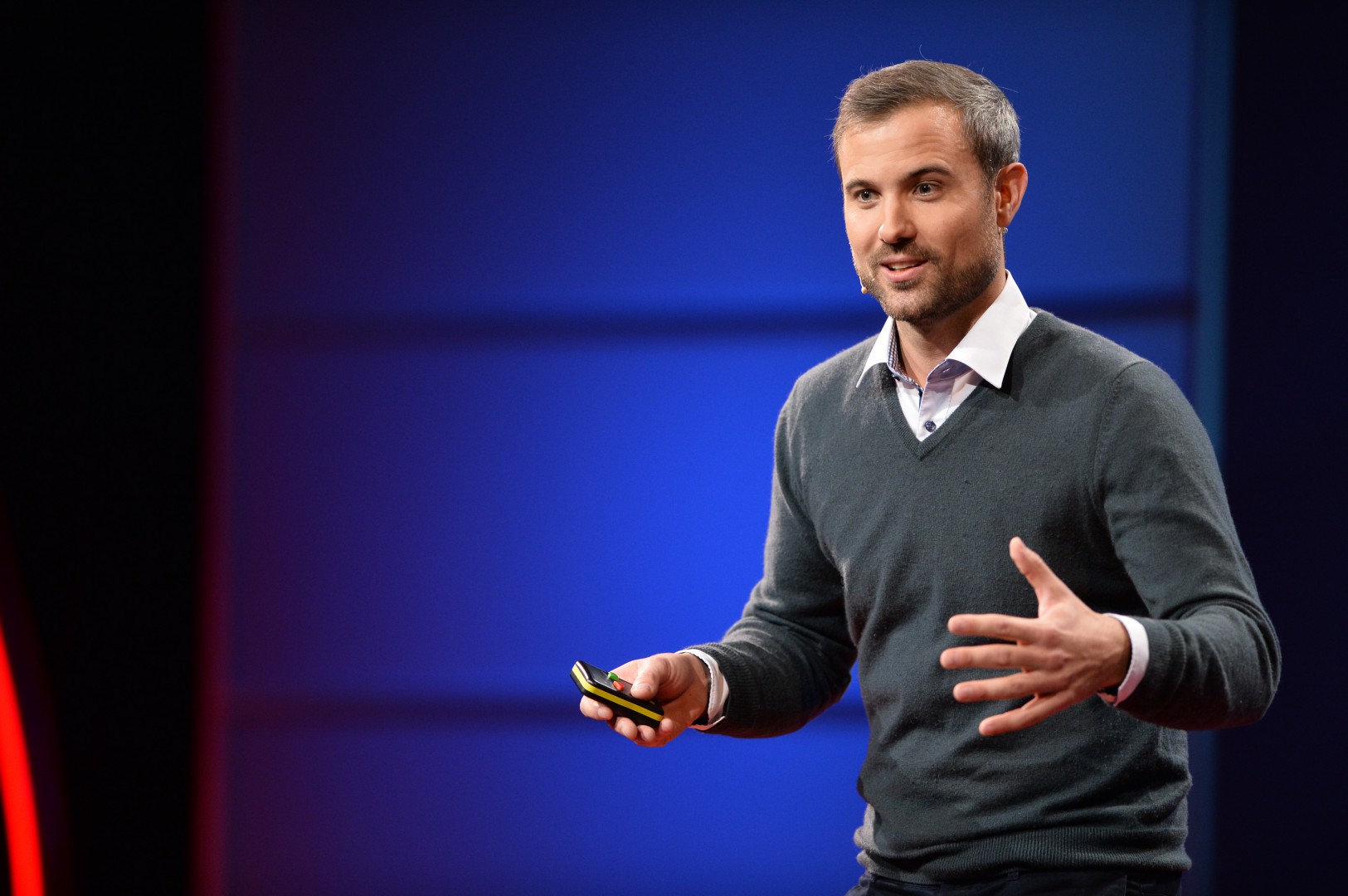
Marc Stoffel pitched us with an incredible idea: „Imagine your boss had an expiry date and would have to be re-elected by employees.“ In fact, he had doubts himself when he first heard about the idea. „60 more days, this is how long I will stay in service.“ He sees a great opportunity in this approach to liquefy static companies and direct feedback from the base to the top. With 85 % of the votes we was elected as CEO last year, but that did not mean he could lean back then. You certainly feel driven by the expectations of your colleagues and subordinates.
"Corporations are networks, and have to be treated as such" @MAfuehrUnt #corporatenetworking #TEDXZurich #networking pic.twitter.com/ky7P0CR4x4
— onedegreetoconnect (@1degree2connect) November 6, 2015
Re-setting the public image of modern successful women
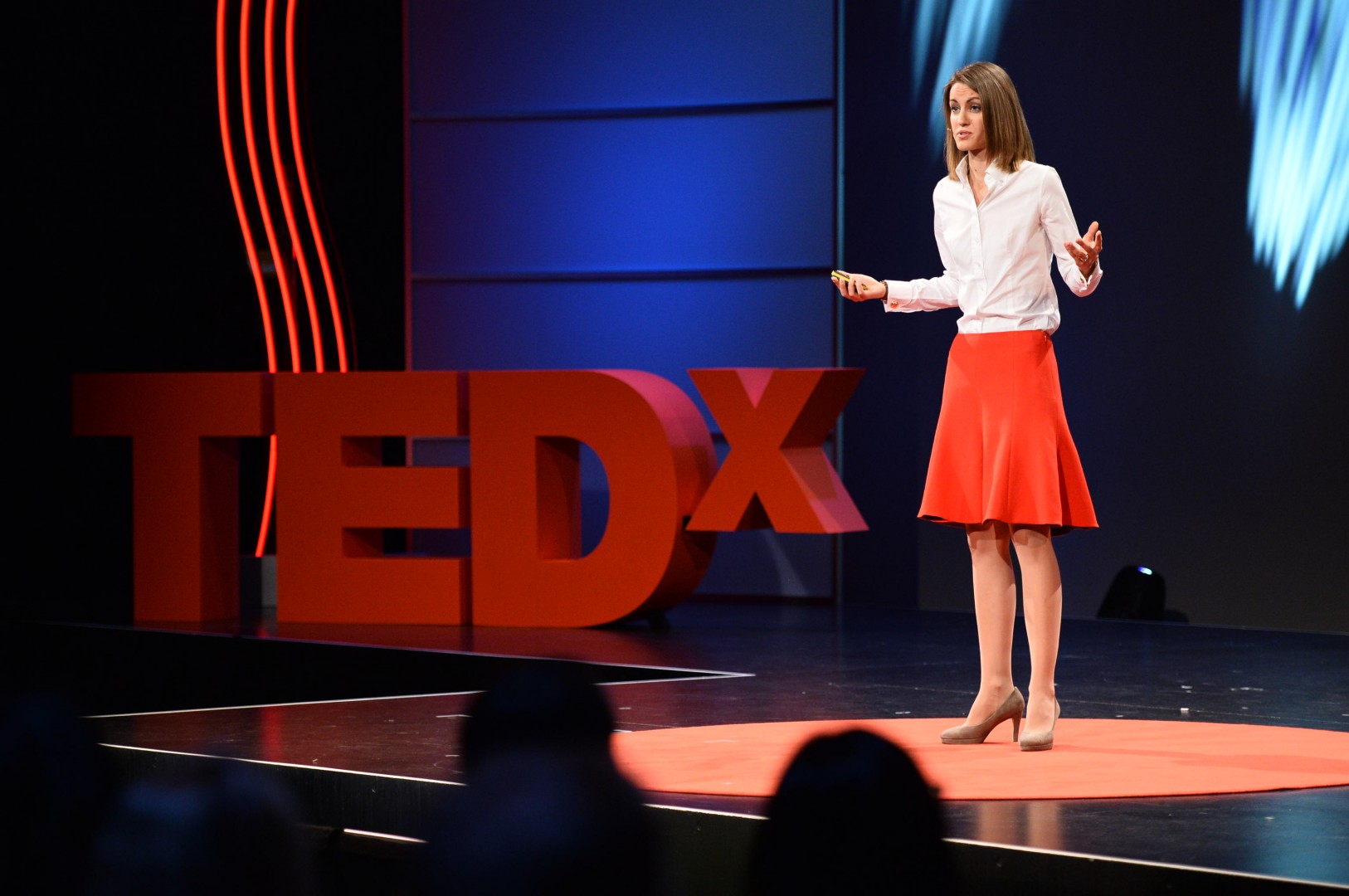
Jennifer Miksch gave an interesting talk. She was the first who broke through the imaginary wall of the mirror showing successful people with smart ideas in an ideal world. In the beginning her talk should have been about female leadership. Instead, she showed us an honest look into her not always perfectly organised life. As a care-taking mother with a full-time occupation she did not have it easy managing everything with confidence. The expectations of society are tremendous, especially for successful women with children nowadays. In the midst of her talk she suddenly fell silent. What felt like a dramatic pause first turned out to be a black out. In this seconds of silence she seemed to be re-setting her very own mind, it seemed. No, it is not easy to cope with being a single parent working full-time with a child at home. She might have just came up with it on the spot, but that does not make it less true: „You can’t be perfect. Be the best you can be.“, „Friends are the base for success.“ It felt strange at first but was very well received at the end; with people applauding the longest compared to all speakers.
Emotionaler Talk! Wie sich Agenden verändern wenn man plötzlich ein Kind "übernimmt" @jennifermiksch #tedxzurich pic.twitter.com/75Wq1gpves
— { Monah } (@monah) November 6, 2015
Art that lets you talk back to NSA spies
Mathias Jud talked about government surveillance at a previous talk in London. In a cooperation with the Swiss embassy he built a very unique art project. After the surveillance of the German government by the NSA and the GCHQ was uncovered, they set up a deliberately public network that everyone could connect to and share their message. Messages were broadcasted in the whole district for anyone to pick up. Later, besides trivial messages classified documents were leaked. He did not stop there and engaged in many more art projects to raise awareness and critical thinking.
First music act: Marena Whitcher’s Shady Midnight Orchestra
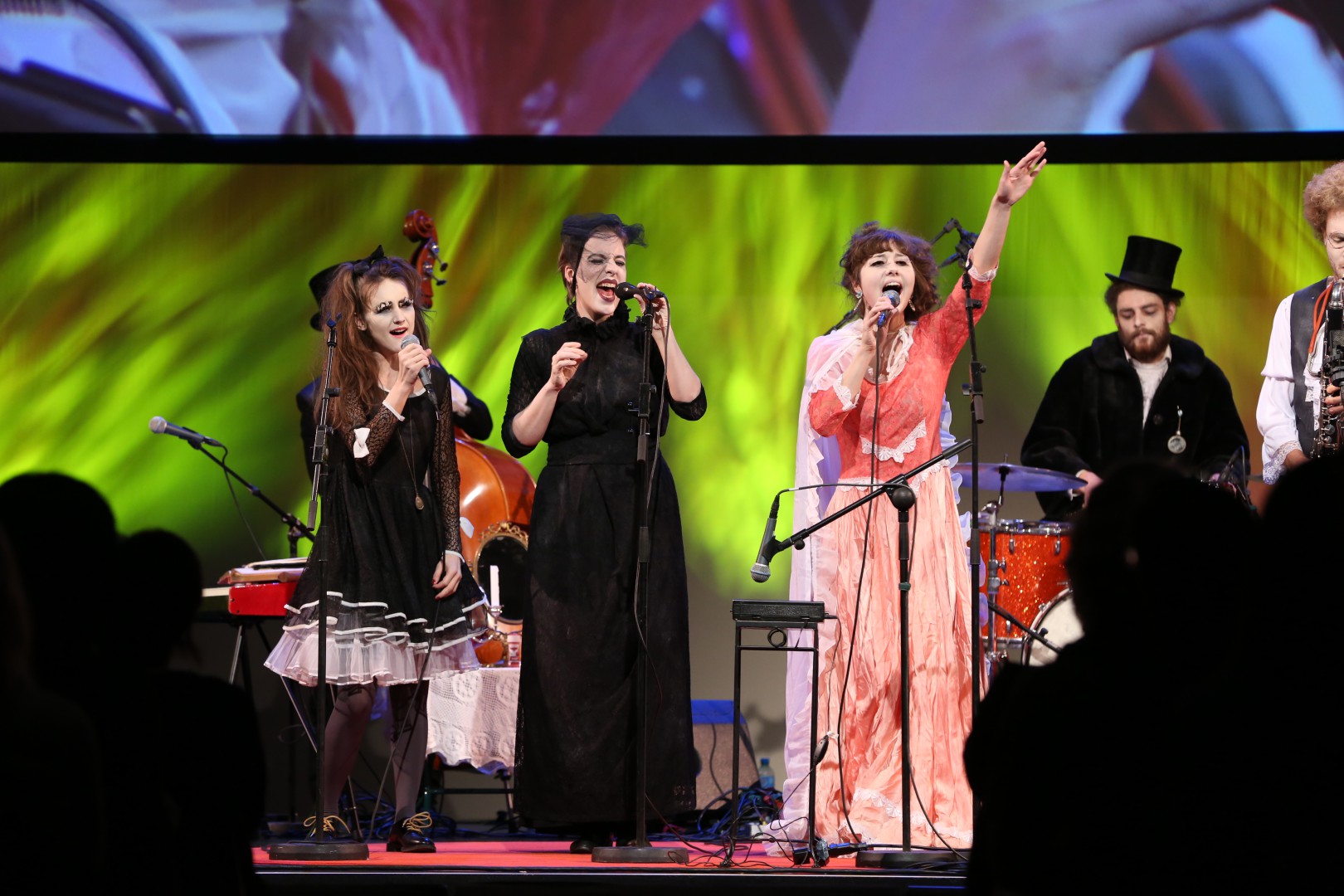
The tense mood faded quickly away when the band members of the first music act slowly stepped on the stage, ringing with glass harps. The music had a spooky halloween vibe on it and while it will not become part of my play list it was certainly mesmerizing to watch.
https://twitter.com/monah/status/662585754409902080
During lunch break we had the chance to try countless finger-foods and other little snacks. The catering was excellent and much love was put into detail. Many of the dishes were particularly healthy, green and even vegan.
The right and the wrong way to look at the war in Syria
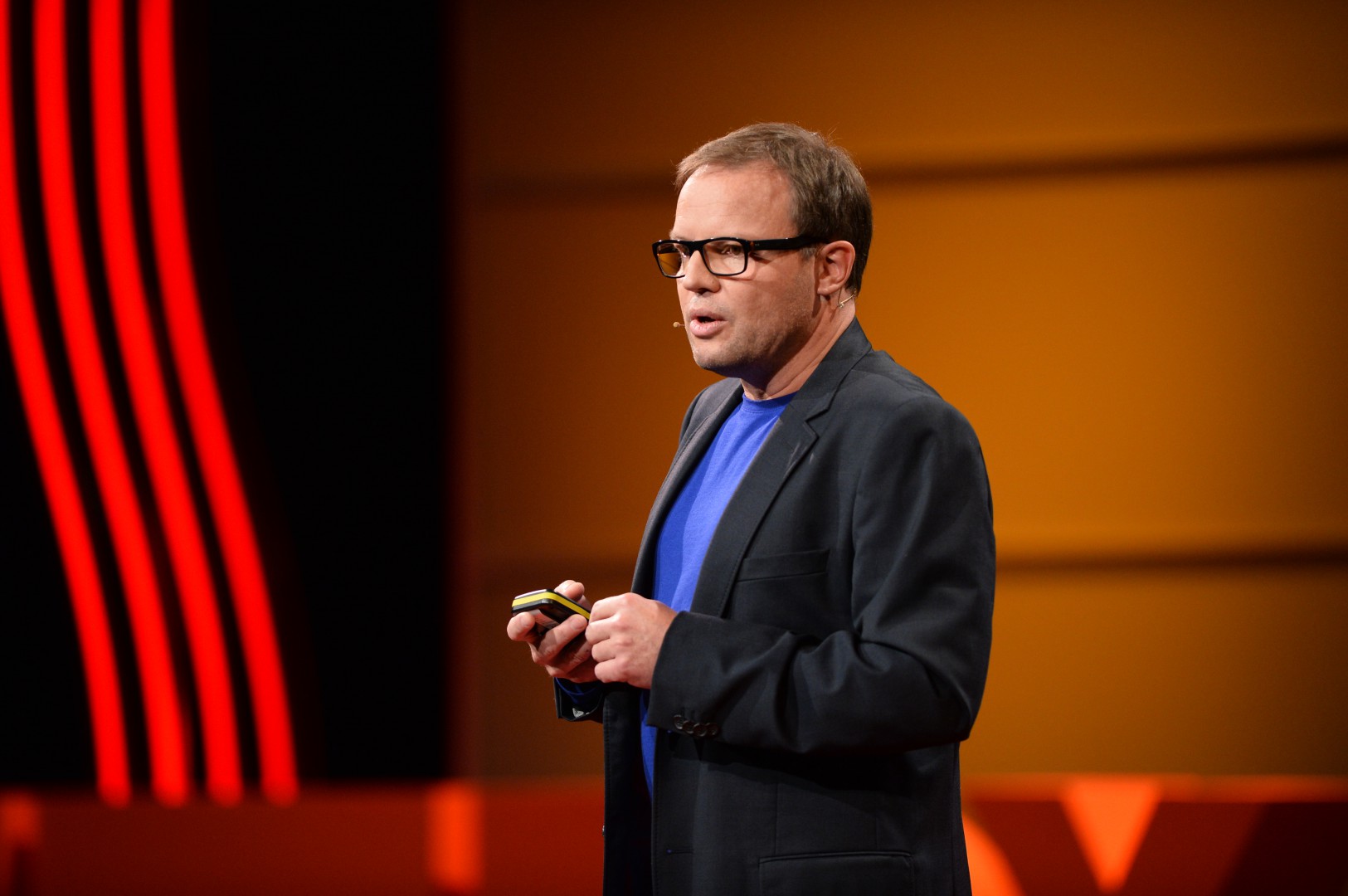
Kurt Pelda talked about propaganda, about war and about cyberterror. The independent journalist just returned from a longer trip to Syria, where he gained much insight about the actual situation beyond the media coverage. According to him, Russia intentionally uses outdated technology in Syria, which leads to undirected devastation. When Russia presented footage of an air strike he noticed that something is off. The geography and vegetation suggest that not an IS shelter was destroyed at that time but some unknown other organisation, because the IS is not active in that part of the country. Moreover, he reveals that the IS is not as successful as it tries to represent itself on the media. Their „soldiers“ use outdated arms and tanks from WW2 and have absolutely no training. He shows us footage showing a firefight where one party does not even tries to aim for a target. They seemed scared and confused. More details can be found in a recent interview.
»Russland führt keinen High-Tech-Krieg, sondern setzt Assads Zerstörung des Landes effizienter fort.« @KurtPelda #tedxzurich
— Philippe Wampfler (@phwampfler) November 6, 2015
What happens when no one is watching… and how to break the cycle
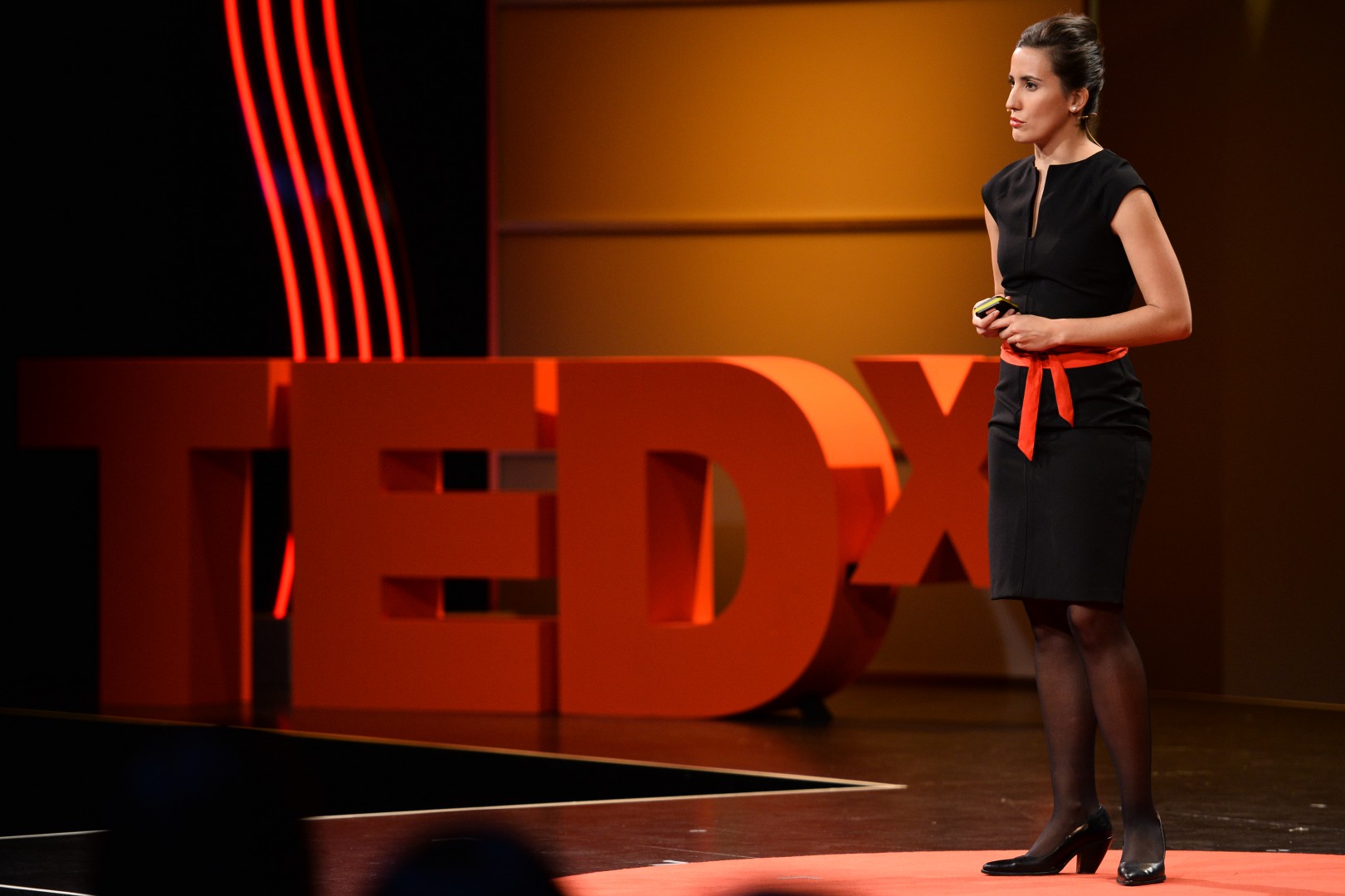
Andreia Fernandes is a victim of domestic violence. It takes a lot of courage to speak up about it. She is one of the 35% children worldwide having experienced domestic violence. Life is not easy if you have not acquired dozens of social skills which are taken for granted by society. When she casually asked a psychologist about the chances of reintegration the answer came out grim. Still, she was standing in front of us this day. What it takes is awareness and openness, because everyone is at least indirectly affected by the outcomes. There are many inconvenient truths not spoken about, including suicide and traumatic experiences.
"#domesticviolence doesn't only affect the person: it affects their #network too" Andreia Fernandes #TEDxZurich pic.twitter.com/qd8YRHMC8B
— onedegreetoconnect (@1degree2connect) November 6, 2015
Flying through (virtual) reality
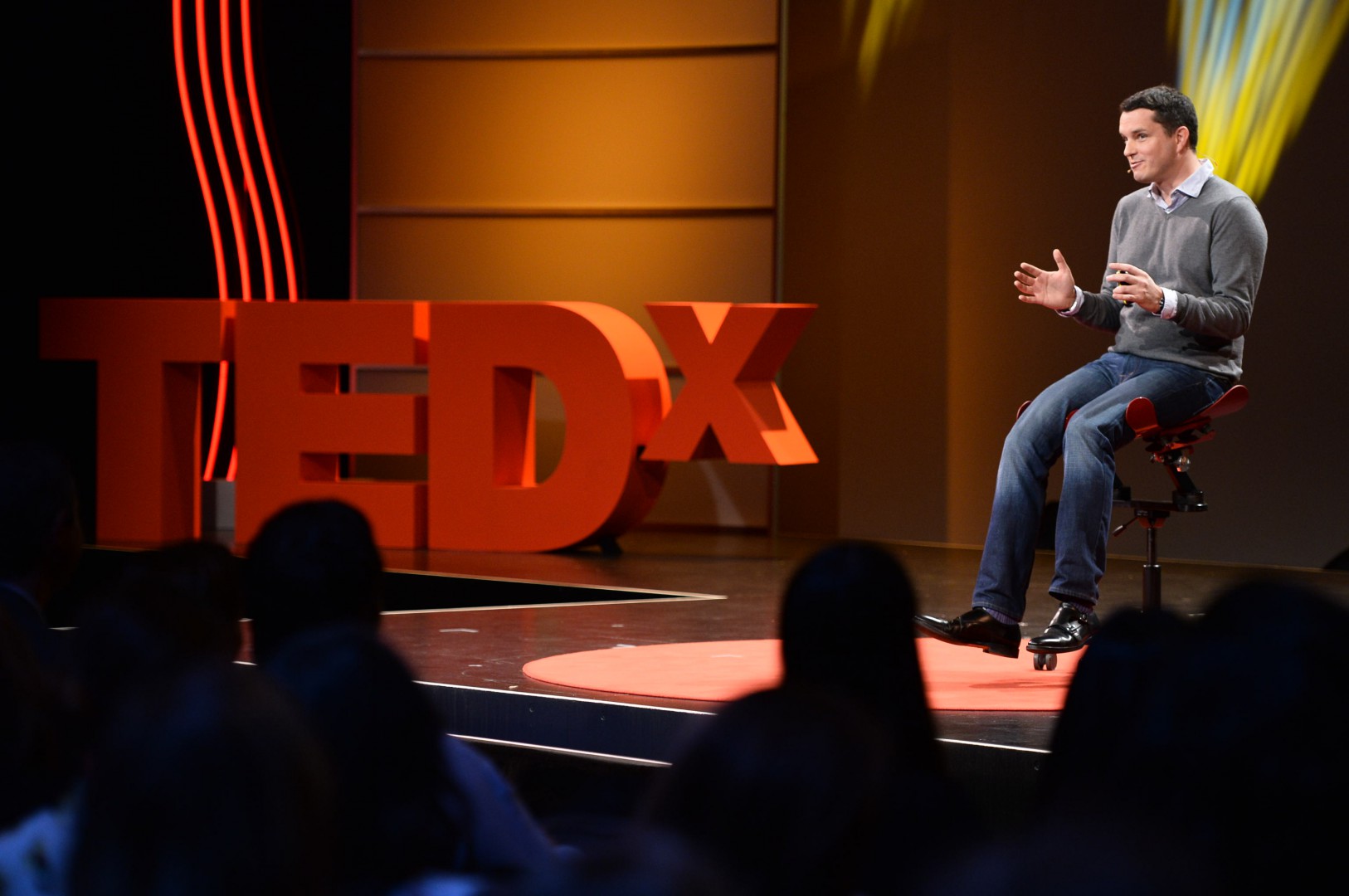
Patrik Künzler started his career with a medical education and liked tinkering with cars. At MIT he was involved in research about the limbic system and later joined the MITMedia Lab where he was developing everyday objects „designed from the brain“. After six years of trial and error he came up with a prototype of a new kind of ergonomic chair which „let’s you fly“, which he calls the Limbic Chair. According to many of his test subjects you feel lighter and can move freely like you were walking or skiing. He also combined this with VR technology to create an unique virtual flying experience.
Who else NEEDS this salsa dancing chair, bargain at 7 500 CHF? Best of #tedxzurich pic.twitter.com/1HB9K4So2M
— Veera Juvonen (@VeeraJuvonen) November 6, 2015
Allowing mobile devices to navigate and understand the world we live in
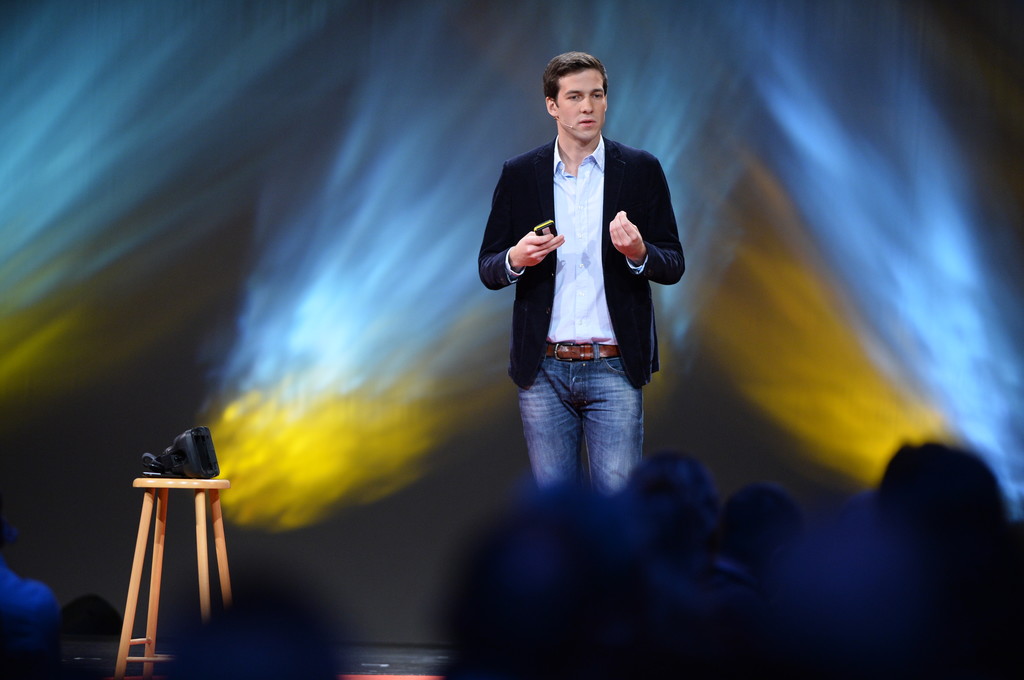
Simon Lynen is part of Project Tango, a project aiming at teaching computers and smartphones to see and understand motion, orientation and movement in our three dimensional world. He and his team at ETH and Google developed a novel motion tracking technology that will allow precise indoor navigation and augmented reality applications. Once a model has been mapped it can be reused to navigate the user around, e.g. in the Zurich main station basement, as he shows in a tech demo.
This video from Project Tango explains the idea and the technology behind it in much more detail.
After another networking break the last session started.
Dementia precaution should become as normal as going to the dentist
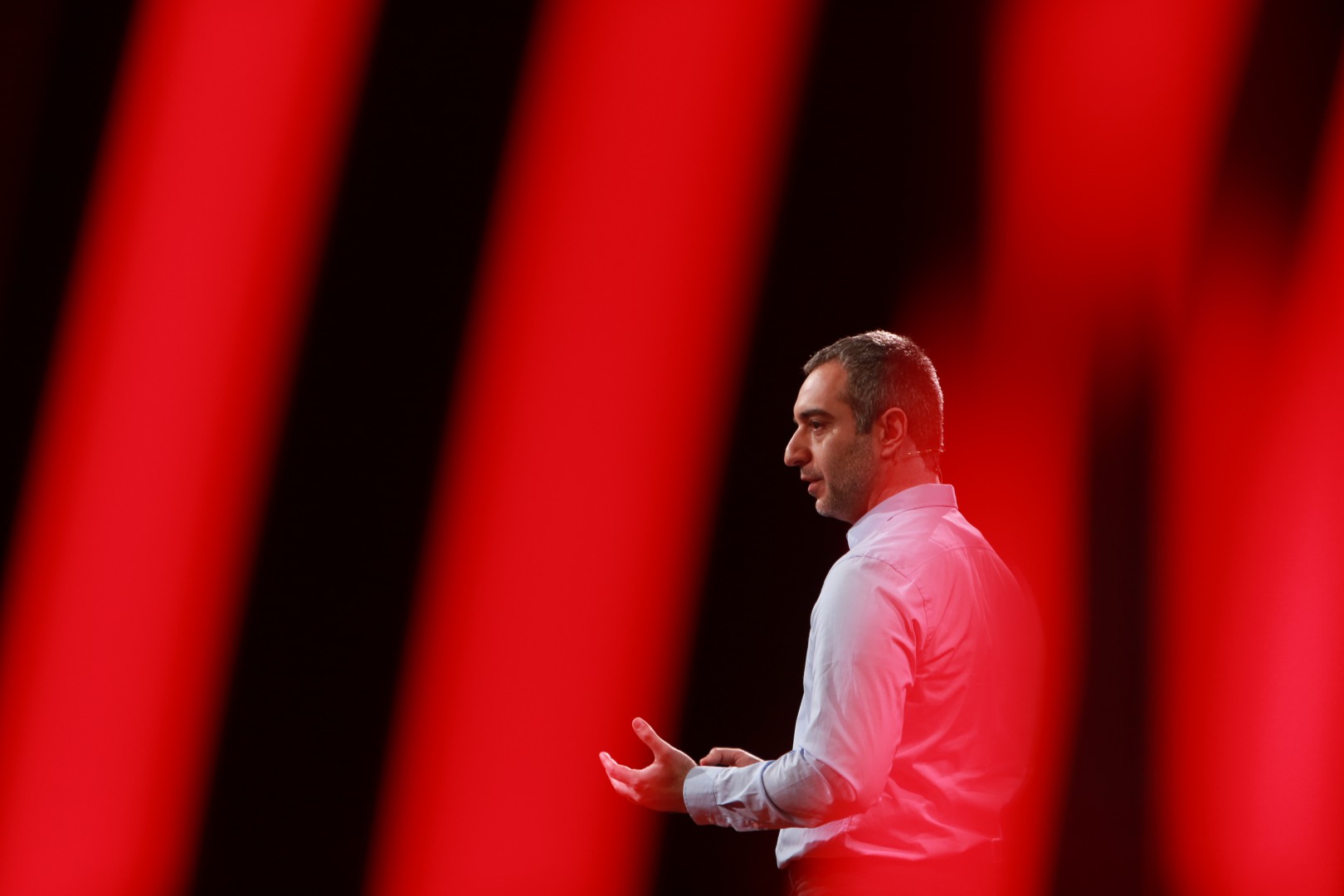
Ioannis Tarnanas’s grandmother has dementia. For many people the diagnosis comes to late. In his opinion Alzheimer and related diseases can be cured much more efficiently if precaution measures were as natural als the check ups at the dentist. The Greek researcher developed an app, called alterniity, that is able to predict Alzheimer by analysing the motor function of the user. This allows more accurate predictions than conventional methods as MRI scans. The app is still in development but seemed to show good results so far.
Now brain mapping to understand memory loss – motor performance can predict brain activity @ITarnanas at #tedxzurich pic.twitter.com/0KNrBVF9iH
— Arzu Coltekin (@acolt) November 6, 2015
Tomatoes talk, birch trees learn – do plants have dignity?
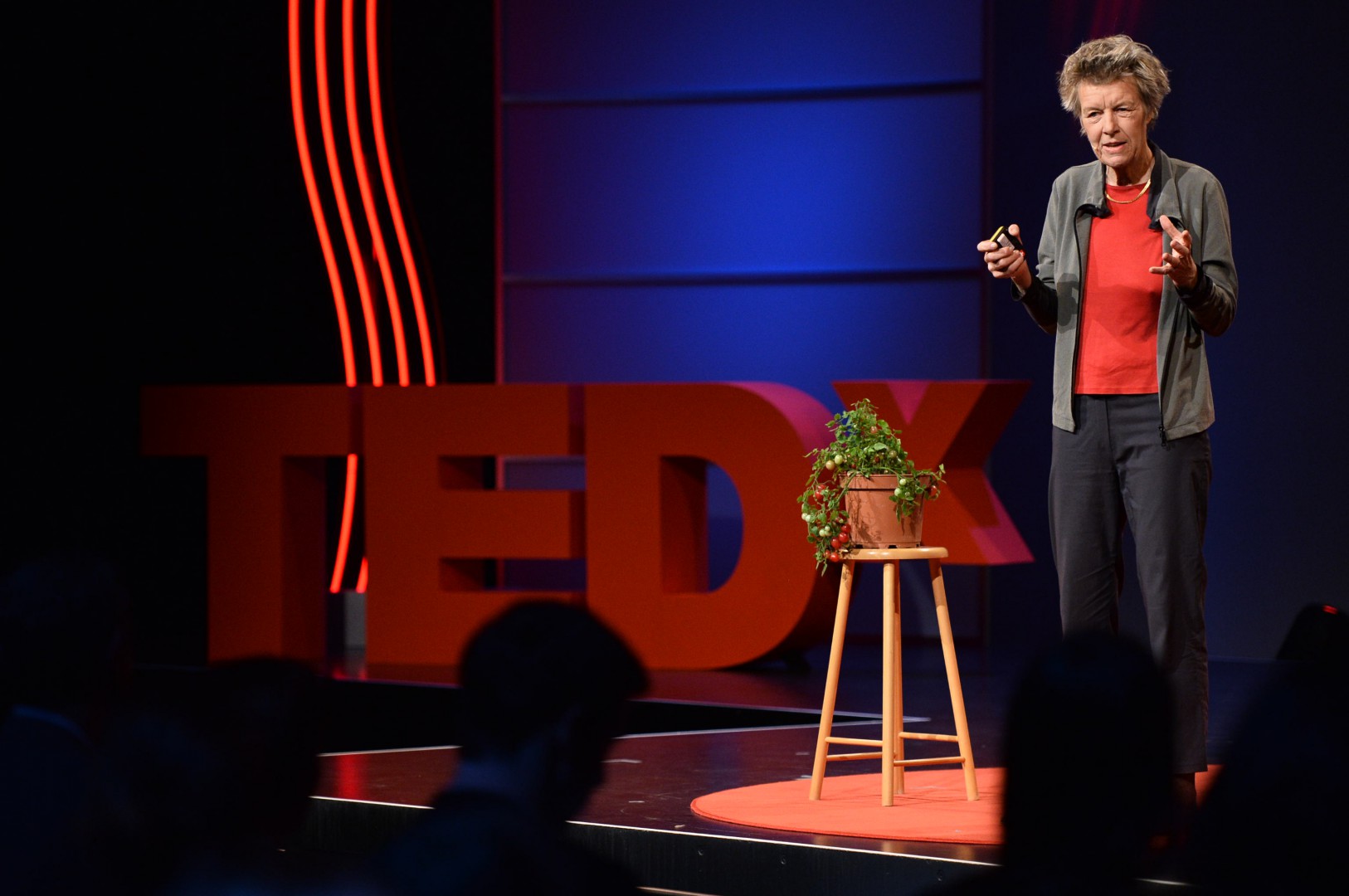
Florianne Köchlin gave a funny talk. Everyone was slightly sceptical at the beginning and some stayed like that until the end. Many plants are more clever than they seem at first. Using signaling molecules noticeable as scents plants can communicate with each other. When a predator approaches, a plant can notify the surrounding fellow species about the threat. It was shown that plants can react differently to an external stimulus after multiple times, which attributes to one definition of learning. Trees and mushrooms in forests are connected by a wide network of roots which she coined as the WWW – wood wide web. Using this network the organisms can exchange nutrients and signaling molecules. She concludes that plants are more than senseless objects, as animals were treated some time ago. The Swiss government attributes every living being dignity – thus including plants. The resonsible commitee was awarded the Ig Nobel Prize in 2008, a prize given by the MIT to „research that makes people laugh and then think“. Her partner, a locally grown tomato plant, did not contribute much to the discussion, but certainly underlined her points. What a shame that some of it was eaten by the host in the end.
Moderator eats co-speaker after speaker explains that plants have dignity ;-) #tedxzurich pic.twitter.com/xM8mf4w9o4
— Wilhelm K. Weber (@SHSwilko) November 6, 2015
Florianne Köchlin looks almost like Professor #Sprout from Harry Potter. #tedxzurich pic.twitter.com/THf18MJCTG
— Reto Vogt (@revogt) November 6, 2015
Mental (w)illness
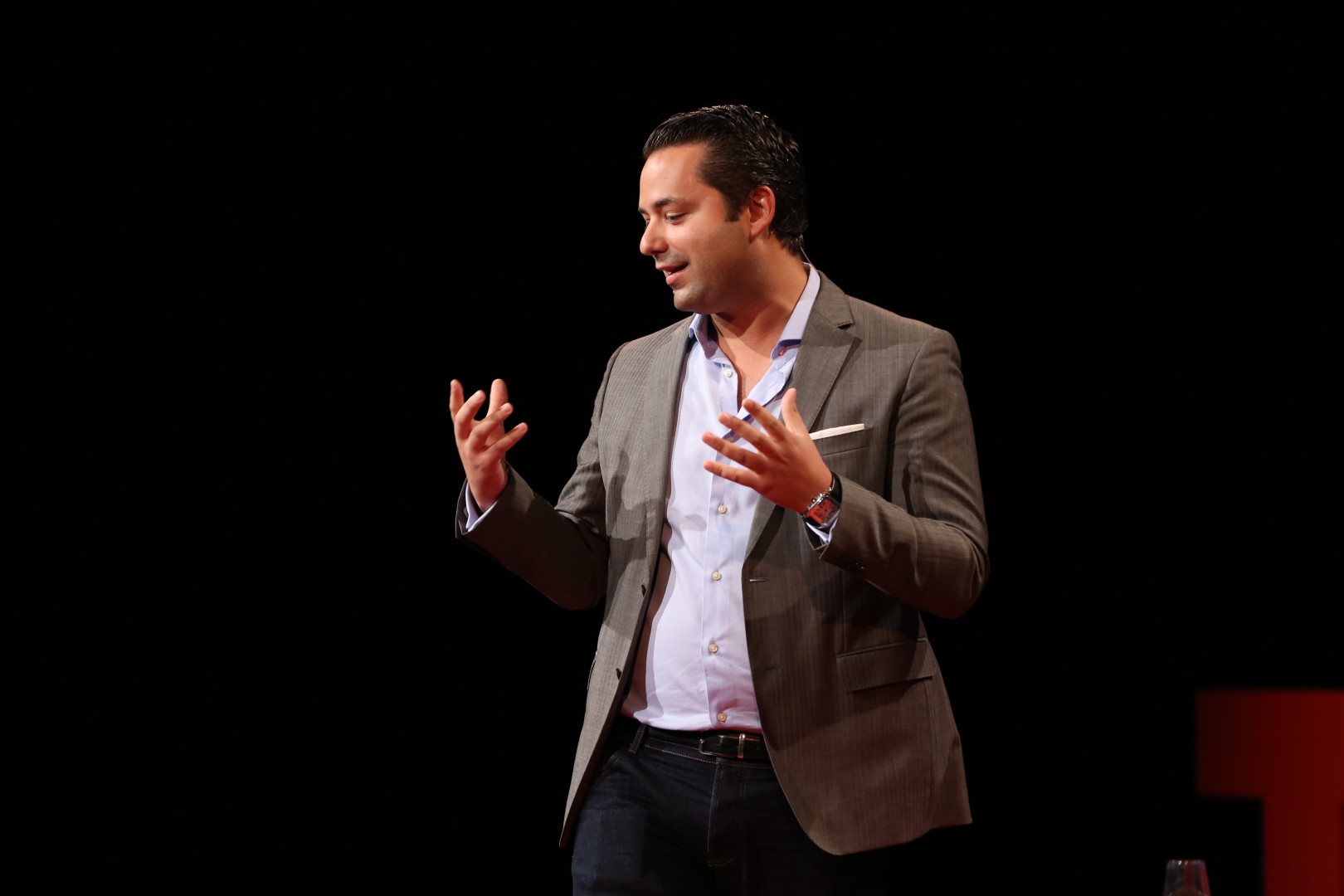
Christian Wehbe knows how to write a punch line. „Losing your mind is a bit like losing your virginity. Happens when you least expect it, when it does it’s pretty underwhelming and it takes you a few years to appreciate its full potential.“ The entrepreneur used to be a successful hedge fond manager when he noticed something with him was odd. He went straight to the hospital reception saying he thinks he is crazy and needs to be hospitalized. Luckily a regular visit with a psychiatrist and medication was enough for him. He was diagnosed with bipolar disorder, a mental illness which caused him subsequently much misfortune, as his job was terminated and he lost many of his friends. Then he found a way to turn his disadvantage into a strength. Taking off the medication, stopping the regular sessions and starting to become a entrepreneur made him to the great speaker he is today. In fact people with bipolar disorder are not handicapped at all, but are actually gifted with many abilities.
Young banker at emergency asking to be taken into psychward. Receptionist: I knew something was wrong w/ bankers @ChristianWehbe/#tedxzurich
— Arzu Coltekin (@acolt) November 6, 2015
The journey across the high wire
I was just recently confronted with Philippe Petit, in a totally different context. At the Zurich Film Festival I watched the movie „The Walk“ about the true story of his high wire walk across the twin towers of the World Trade Center in 1974. His talk was about following his passion, practising until perfection and using improvisation in order to deal with difficult situations.
Second music act: YOKKO
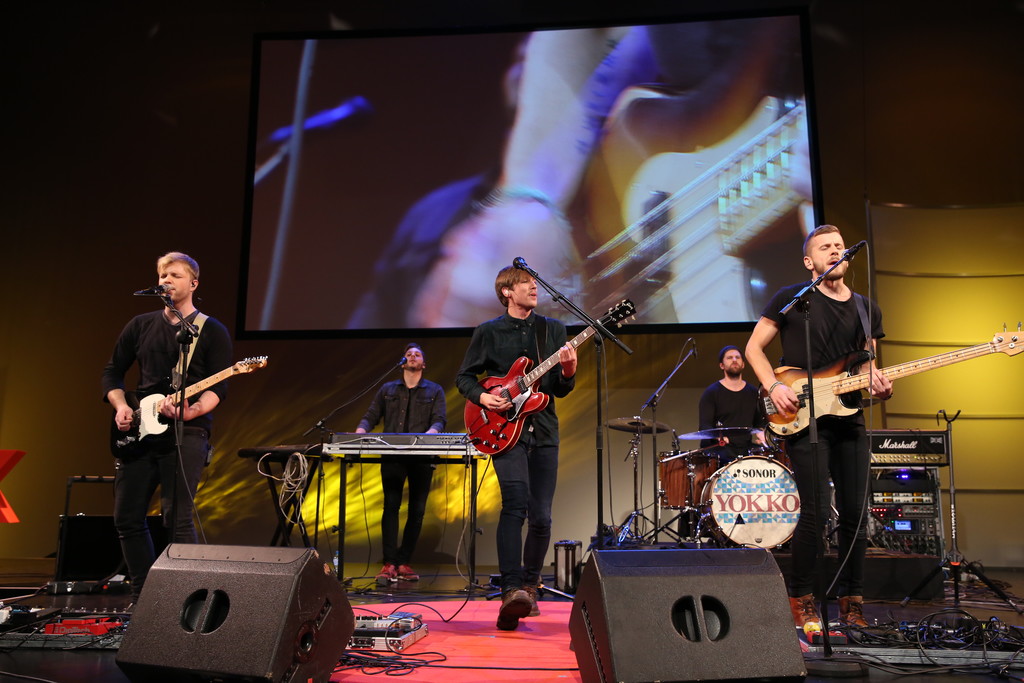
The event was rounded up by the performance of the Swiss band YOKKO. The all-men rock band played three great songs and got everyone in the right mood for the following post-conference aperitif.
Last act of #tedxzurich @weareyokko pic.twitter.com/uw10DJS5fv
— Tim Duehrkoop (@tdu) November 6, 2015
While we were listening, somebody was drawing. An artist from cleverclip condensed the main ideas and figures on a graphic recording created over the day.
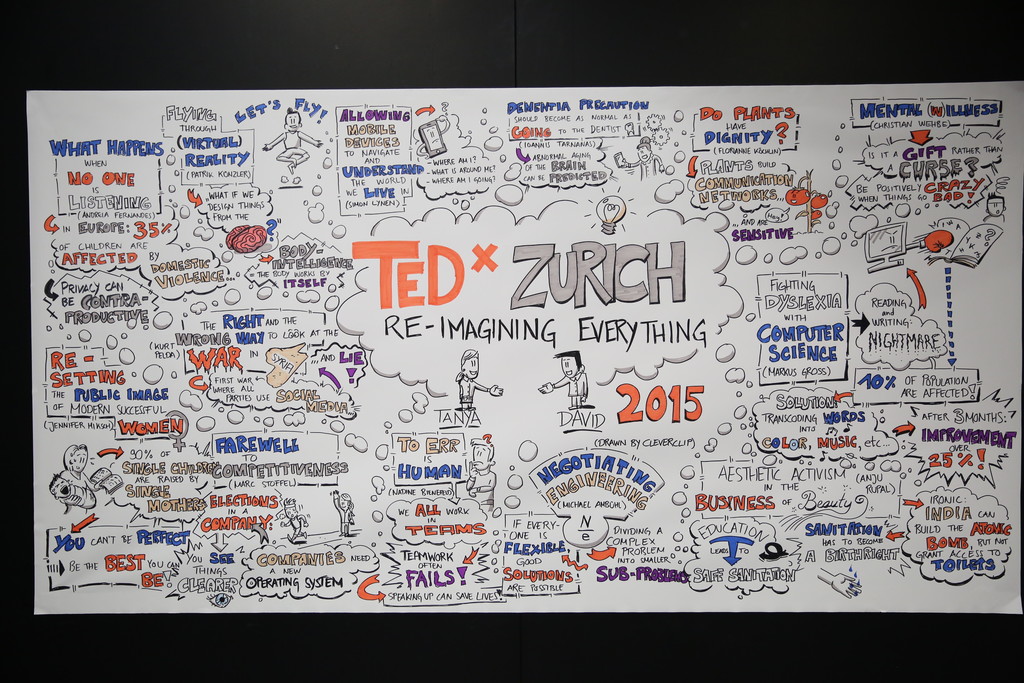
Wrapping it up
We were long ago bought by the riche catering service, and neither quality nor creativity did dropped for the last apero of the day. Really, concerning the food, there was no end in sight. A little surprise was announced which turned to be out snacks made from insects. I can now (proudly) say I know how mealworm tastes, and it is not bad at all.
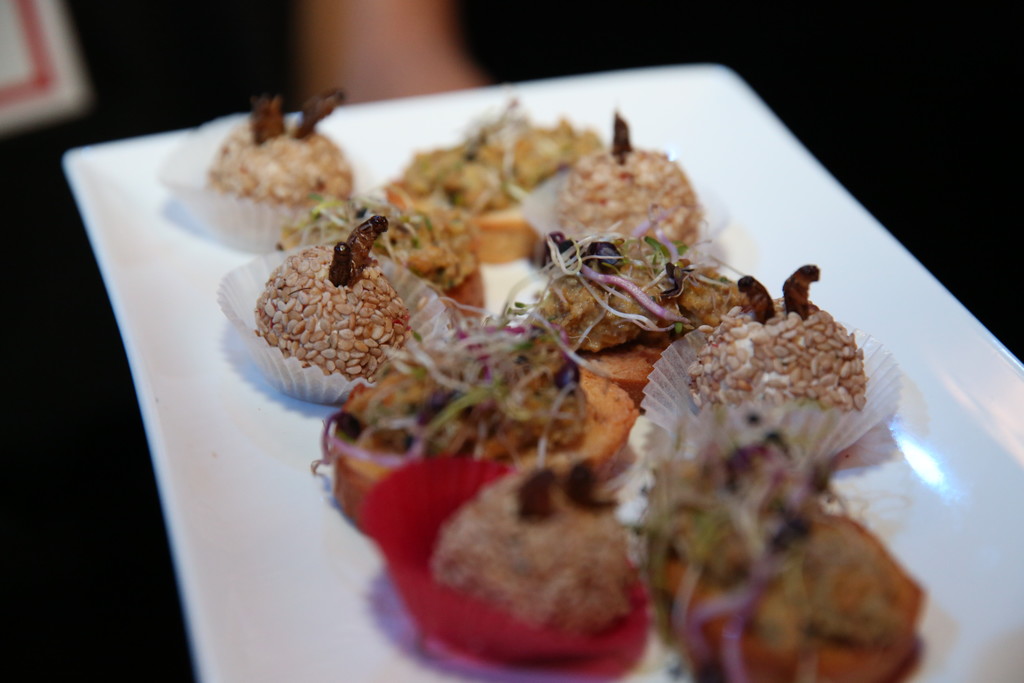
We continued talking to some of the attendees and found some fellow ETH students as well. In the end we all had the chance to test out the ultra-ergonomic chair from the earlier talk. It really feels different than sitting or standing and I would instantly take it home if it was mass-produced. You are perfectly balanced and can move your lower body independently and do your writing or reading at the desk.
This TEDx conference was a great success for the organizers, the speakers and the audience. I can encourage everyone to join next year and experience the diverse and productive environment.
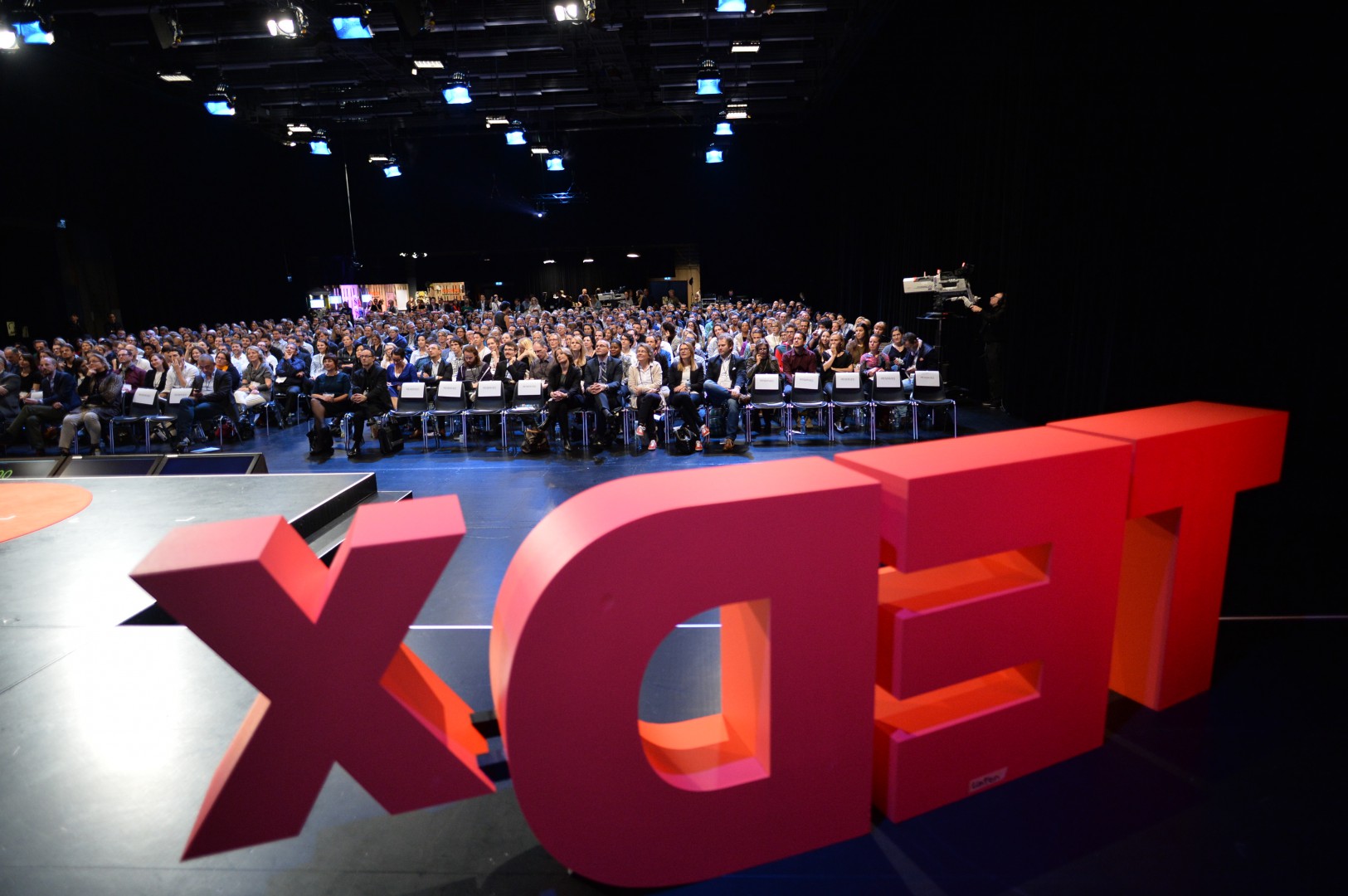
Thank you for sticking with me for 3000 words. Let me hear what you would re-imagine below.
